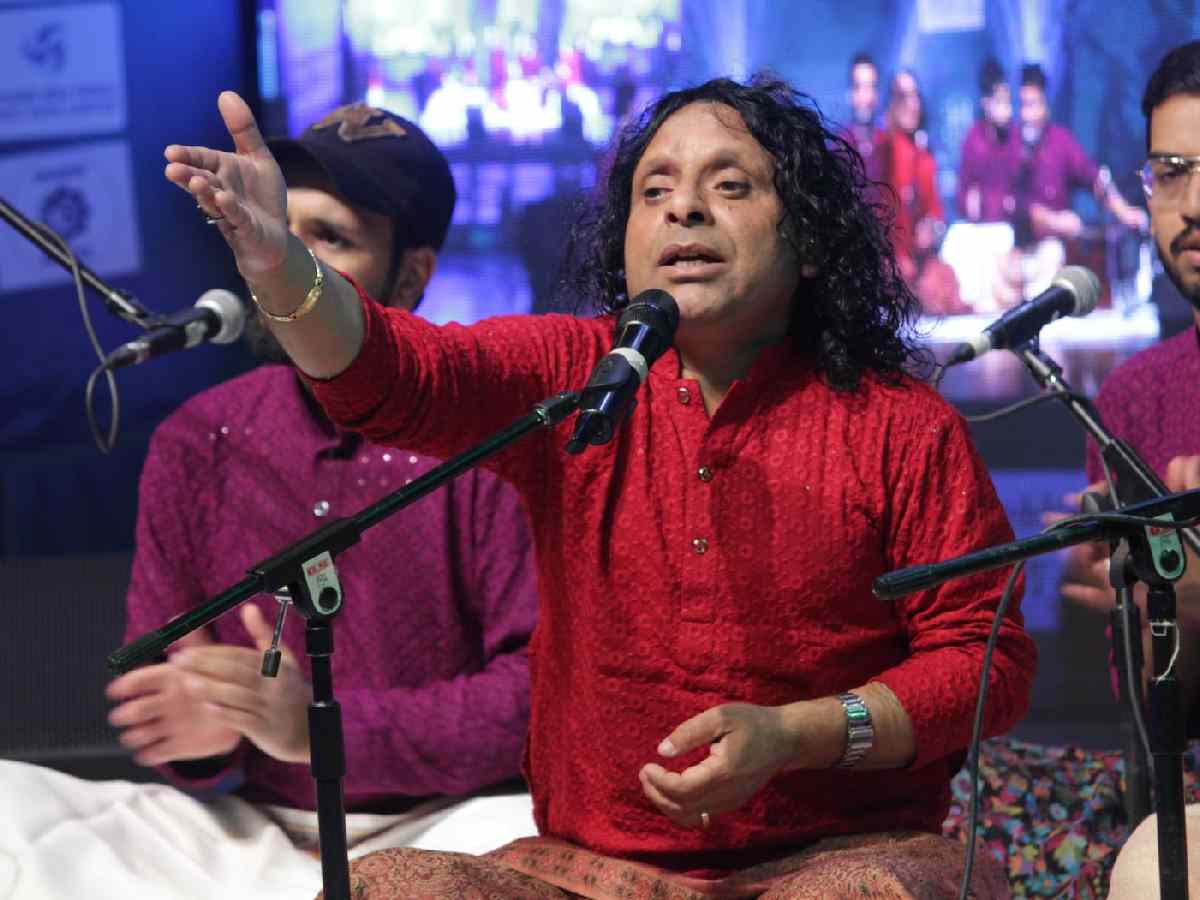Renowned Sufi singer Shafi Sopori believes that Delhi is a city filled with warmth and generosity.
“I always have an amazing experience performing in Delhi. People here are always ready to help. That’s why I say, ‘Dilli sach mein dilwalon ki hai’ (Delhi truly belongs to the kind-hearted),” Shafi told Patriot in an interview.
Sharing a personal anecdote, he recalled a recent interaction: “A person from Delhi called me and asked what I was doing. I told him I was at home. He then offered to send me some money as a token of love, which I politely declined. That’s the kind of love Delhiites show.”
The Kashmir-based singer has a deep connection with the capital, frequently visiting for performances. “Whenever I visit Delhi, my first stop is the Nizamuddin shrine—and of course, its food. I do multiple shows here and always enjoy performing at Hotel Le Meridien,” he said.
Also read: People lonelier today due to use of technology: music composer Ankur Tewari
Shafi draws his musical inspiration from legendary Pakistani Sufi singers Abida Parveen and Nusrat Fateh Ali Khan. “Initially, I was inspired by Bollywood music, especially songs sung by Mukesh. But as I grew older and discovered Abida Parveen and Nusrat Fateh Ali Khan, I realised that Sufi music was my true calling. Until then, I thought only film songs showcased talent. Sufi music changed that perspective,” he said.
He has rendered several well-known tracks such as Dama Dam Mast Qalandar, Dil Pe Zakham Khate Hain, Akhiyan Udeek Diyan, Dillagi, Sochta Hoon Woh Kitne Masoom Thay, and Afreen Afreen.
“My parents were also inclined towards Sufism. I inherited this love for Sufi music from them,” he added.
The soul of Sufism
Speaking about the message of Sufism, Shafi said, “Sufism carries a deep message of peace, love, and brotherhood. All the great Sufi poets have written about love being the essence of Sufism.”
He also pointed to Kashmir’s rich tradition of Sufi music. “There’s a strong community of Sufi music lovers in Kashmir—whether it’s my qawwalis or Kashmiri Sufi compositions. They deeply value raag and sur and want to experience them in their purest form,” said Shafi, who is an admirer of Kashmiri Sufi poet Shamas Faqir.
Known for his captivating stage presence and soulful voice, Shafi prefers performing live over studio recordings. “Many friends suggested I record songs in a studio, but honestly, I don’t feel the same connection there. The magic of Sufism lies in a live connection with the audience.”
Recalling a recent memorable performance, he said, “A woman came up to me afterward and said, ‘Who are you? My husband never sits through any gathering like this, but today he stayed and listened to your music.’ I laughed and told her, ‘I’m a magnet!’”
From Sopore to the stage
Shafi has also trained himself to sing in flawless Urdu, free of his native Kashmiri accent. “People outside J&K prefer listening to us in Urdu. We recently had several performances in Lucknow—a rare opportunity for a Kashmiri artist—and the audience there loved our work. I truly thank the people of Lucknow for embracing our style of Urdu.”
He began his musical journey during a turbulent period in Kashmir. “I used to go to the radio and TV stations to record programmes. That’s how it all started.”
Hailing from Sopore town in north Kashmir, Shafi also mentors young singers. “I formed Kashmir’s first music band, Jhankaar, in 2003. We’re a group of about ten people.”
Today, Shafi Sopori is a household name in the valley and a sought-after performer at weddings and official events alike.





